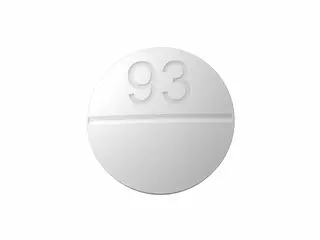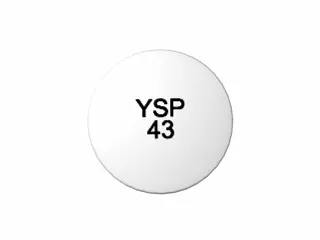Gastrointestinal Health
Explore our range of effective gastrointestinal health products designed to support digestion, relieve discomfort, and promote a balanced gut. Shop now for trusted supplements, medications, and natural remedies to maintain your digestive well-being.
Gastrointestinal health is essential for overall well-being. Many people face issues like acid reflux, indigestion, irritable bowel syndrome (IBS), and diarrhea. The right medication can help manage these conditions effectively. Here, we review some popular gastrointestinal medications available in online pharmacies.
Aciphex (Rabeprazole) is a proton pump inhibitor (PPI). It reduces stomach acid production. It is widely used for treating GERD, ulcers, and Zollinger-Ellison syndrome. Patients typically take it once daily. Aciphex works quickly and provides long-lasting relief. Side effects are usually mild, such as headache or nausea.
Asacol (Mesalamine) is an anti-inflammatory drug. It targets inflammation in the colon. Asacol is primarily used for ulcerative colitis. The medication helps reduce flare-ups and maintain remission. It is taken orally with meals. Common side effects include headache and abdominal pain.
ColoSPA (Mebeverine) is an antispasmodic. It helps relieve cramps in the intestines. ColoSPA is often used for IBS symptoms like bloating and abdominal pain. It works by relaxing the gut muscles. The medication is usually well tolerated. Mild side effects may include dizziness or nausea.
Imodium (Loperamide) is an effective treatment for diarrhea. It slows down gut movement, allowing better absorption of fluids. Imodium is commonly used for acute diarrhea and IBS-related diarrhea. It acts fast and is easy to take. Side effects can include constipation and mild stomach discomfort.
Maxolon (Metoclopramide) promotes stomach emptying. It is used to treat nausea, vomiting, and gastroparesis. Maxolon works by increasing gut motility. It is taken before meals and at bedtime. Some patients may experience fatigue or restlessness as side effects. It should be used under medical supervision.
Motilium (Domperidone) is similar to Maxolon. It helps with nausea and vomiting. Motilium promotes stomach emptying without crossing the blood-brain barrier, which reduces central nervous system side effects. Typical side effects include dry mouth and headache. It is often prescribed for GERD and gastroparesis.
Nexium (Esomeprazole) is a popular PPI. It reduces acid production effectively. Nexium is used for GERD, erosive esophagitis, and Zollinger-Ellison syndrome. It provides relief from heartburn and acid-related discomfort. The medication is usually taken once daily before meals. Side effects may include headaches and diarrhea.
Pentasa (Mesalamine) is another medication for inflammatory bowel disease (IBD). It treats mild to moderate ulcerative colitis and Crohn’s disease. Pentasa works by blocking inflammatory chemicals in the gut. It is usually taken in divided doses throughout the day. Side effects can include nausea and rash.
Pepcid (Famotidine) is an H2 blocker. It reduces stomach acid by blocking histamine receptors. Pepcid is used to treat GERD, ulcers, and Zollinger-Ellison syndrome. It acts faster than PPIs but may have shorter duration. Common side effects are headache and dizziness.
Prevacid (Lansoprazole) is a PPI that decreases acid secretion. It treats GERD, ulcers, and erosive esophagitis. Prevacid is effective in preventing acid damage and promoting healing. The medication is taken once daily, usually before breakfast. Side effects include headache and abdominal pain.
Prilosec (Omeprazole) is one of the most well-known PPIs. It controls acid production and treats GERD, ulcers, and Zollinger-Ellison. Prilosec has a good safety profile and is available over-the-counter in some countries. Patients often experience relief within a few days. Side effects include diarrhea and nausea.
Protonix (Pantoprazole) is another effective PPI. It helps with GERD and erosive esophagitis. Protonix is taken once daily and reduces acid production for up to 24 hours. It has similar side effects to other PPIs, such as headache and diarrhea. The medication helps heal stomach lining and prevents damage.
Reglan (Metoclopramide) is the generic form of Maxolon. It helps with nausea, vomiting, and delayed stomach emptying. Reglan enhances gastrointestinal motility. It is important to use Reglan with care due to potential neurological side effects like tremors or restlessness. It is prescribed for short-term use.
Xifaxan (Rifaximin) is an antibiotic that targets gut bacteria. It is used for traveler’s diarrhea, IBS with diarrhea, and hepatic encephalopathy. Xifaxan works locally in the intestines without significant systemic absorption. Side effects are minimal but may include nausea and flatulence.
When choosing a medication for gastrointestinal health, consider your symptoms and diagnosis. Consult a healthcare provider for the best option. Always follow the prescribed dosage and avoid self-medicating. Proper treatment can improve quality of life and reduce discomfort.
These medications offer a range of options for acid control, inflammation reduction, symptom relief, and bacterial management. Most are well tolerated, but side effects can occur. Monitoring and regular check-ups are advisable for prolonged use. Maintaining a healthy diet and lifestyle also supports gastrointestinal health.












